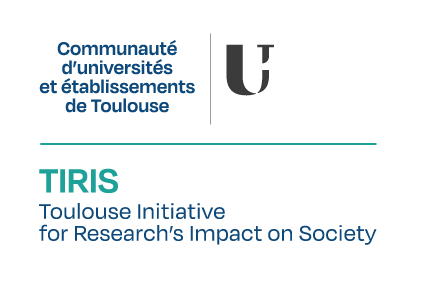MAJOR PROGRAMS
Research – Education – Innovation – Science & society
Four targeted action plans : research, education, innovation, science-society
TIRIS, an interdisciplinary programme designed to address the major challenges of tomorrow. Supported by the Toulouse Community of Universities and Colleges, TIRIS is deploying four targeted action programmes: research, education, innovation and science-society, in order to highlight Toulouse’s scientific excellence in all its forms. This programme brings together experts from a wide range of fields to support change and help build a sustainable future based on solidarity. Thanks to this diversified approach, TIRIS embodies the commitment of the Toulouse community, mobilised to drive the region’s transformation and encourage a collective dynamic in the service of the public good.
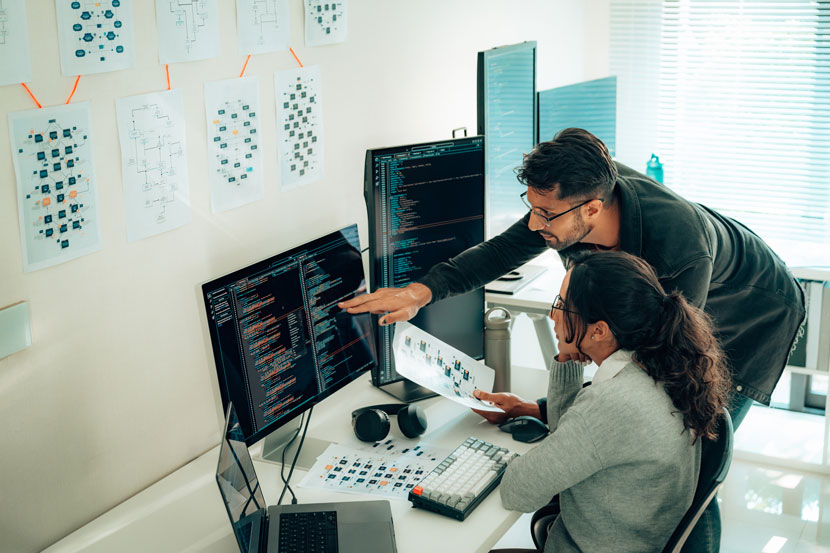
Research
Stimulate new interdisciplinary research and attract new talent to address the major challenges of the 21st century.
Attractiveness device : Fellowship Program
- AToUT – Attractiveness of the University of Toulouse for transitions : two-year postdoctoral fellowships supporting high-level, interdisciplinary and international research. 44 fellowships over 3 calls (2025-2028), co-funded by the European Union under Horizon Europe (MSCA-COFUND).
- Advanced Fellowship : to attract experienced researchers (5 to 8 years of post-doctoral experience). Call under development.
Scaling-up science program
Annual call for projects aimed at developing and strengthening interdisciplinary approaches between players on the Toulouse site, to fund 4-years projects until €330k per project (2 thesis grants + environment).
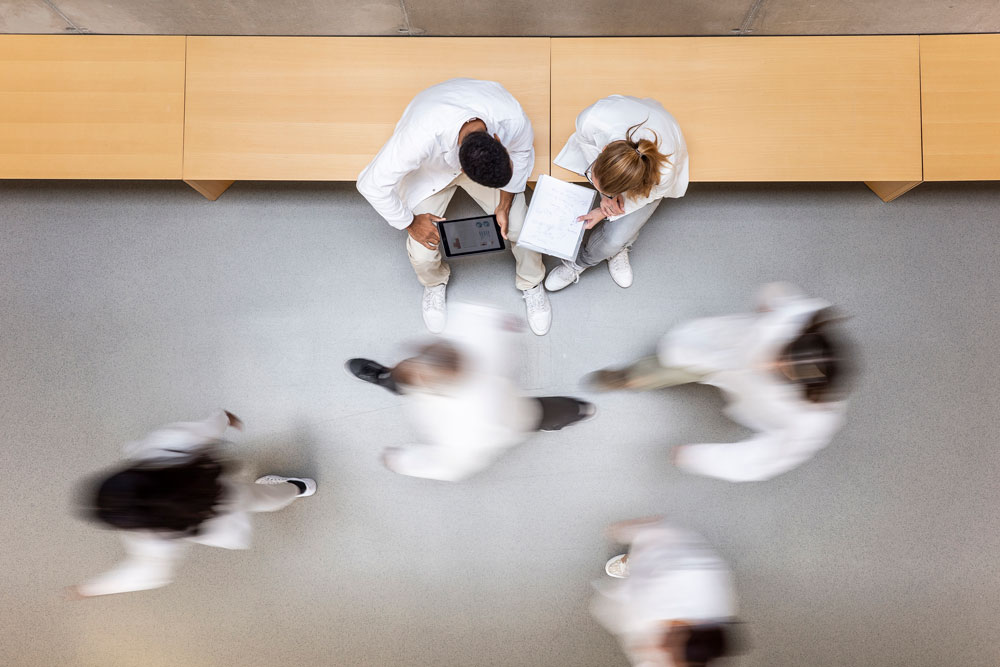
Education
Developing new interdisciplinary courses to meet the major challenges facing society, technology and science.
Pedagogical innovation unit
Experimentation platforms to support teaching teams in setting up new courses, particularly in interscience. These will include :
- Strengthen the service dedicated to training teachers in innovative teaching methods
- Setting up innovative approaches and experimentation platforms to support projects for hybrid teaching and educational transformation
- Strengthening innovation skills by setting up hubs that interact with the socio-economic world
Creation of interdisciplinary / interscience certificates (Minor Programs)
- Targeted certificates built as a progressive set of Master’s or Doctorate level UEs aimed at professionalisation (including research)
- Opening certificates accessible to all as a complement to a diploma: a set of UE to choose from (Bachelor, Master, Doctorate)
- Strengthening certificates: more at Bachelor’s level for people not destined to go on to a Master’s degree / integration into a clearly identified professional sector
Laboratory of ideas
Around the pedagogical transformation of the training programme
- Encourage exchanges and reflection between teacher-researchers on technological, societal and scientific issues, etc.
- Organise inter-university workshops to share experiences
- Promote the prototyping of new training courses
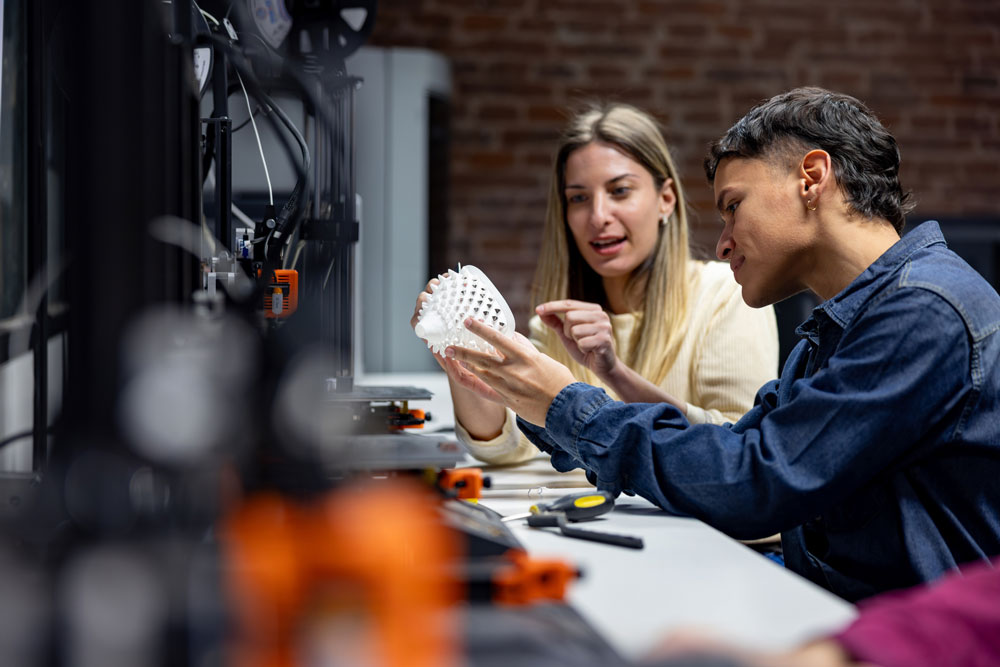
Innovation
Fostering the emergence, incubation and consolidation of partnership-based innovation projects with a societal impact and demonstrators to accelerate change.
Brave new Innovation Program
- Accelerator for multidisciplinary public/private projects – Strand 1 : prematurity of high-risk public/private scientific projects with a strong societal impact, funded to the tune of €40k per project, 55 projects funded over 10 years.
- Accelerator for interdisciplinary public/private projects – Part 2 : maturing public/private scientific projects, financed to the tune of €120k per project, co-financing required up to 75% of the amount financed, lasting 18 months, 23 projects financed over 10 years.
Innovative platforms and demonstrators
Support for the development of scientific and technological platforms, funded to the tune of €1.6m per project, 8 projects funded over 10 years, with co-funding from socio-economic partners.
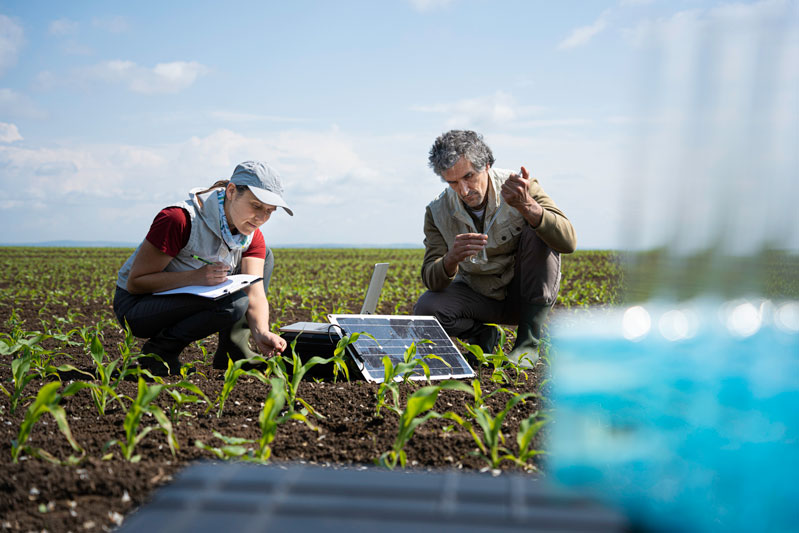
Science and society
Develop a shared culture and solutions co-constructed with non-academics to meet socio-eco-environmental challenges.
The IRS (Research-Society Interactions) Observatory
- Its aim is to map and capitalise on various experiences of collaboration between researchers and extra-academic partners (associations, more or less institutionalised groups (transition movements, citizen and local alternatives), cultural players (CCSTI, museums, artists, etc.), cooperatives, local authorities, businesses, etc.).
- It provides food for thought on the skills and forms of engineering needed to develop RSIs.
Co-research
Funding for research projects developed jointly by academic partners and partners from industry. This funding takes the form of a call for projects divided into two parts:
- Part 1 ‘Emergence’: Funding for consortia wishing to start their collaboration or continue their initial activities. (funding up to €10k)
- Part 2 ‘Consolidation’: Funding for established consortia wishing to expand their previous work. (funding up to €50k)
The Science Shop
A facilitating interface that supports all stakeholders in the design and implementation of their joint research project. It is an intermediation system that puts civil society players in touch with those involved in research and higher education. It collects the expectations and needs expressed by groups of citizens, most of them not-for-profit. The aim is to provide information, referrals, contacts and links between researchers and stakeholders in society, to encourage the co-construction and circulation of knowledge between research and society.
